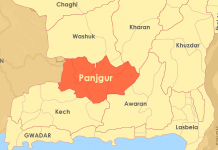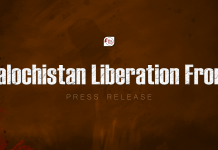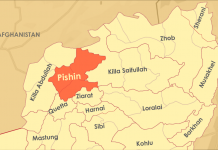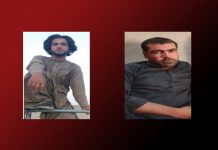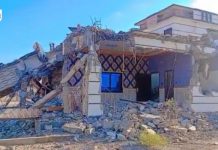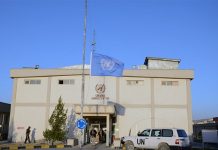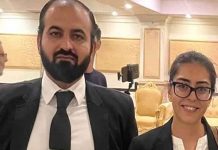On October 23, an attack on the state-run Turkish Aerospace Industries (TUSAŞ) near Ankara resulted in the deaths of five people and injuries to more than 20 others. The Kurdish People’s Defense Center (HSM) later claimed responsibility, identifying one of the attackers as Şevjin Aliçiçek, known within the organization as Asya Ali. For Asya, this mission marked the culmination of a path she had followed for nearly a decade—a path rooted in Kurdish identity, ideological commitment, and personal sacrifice.
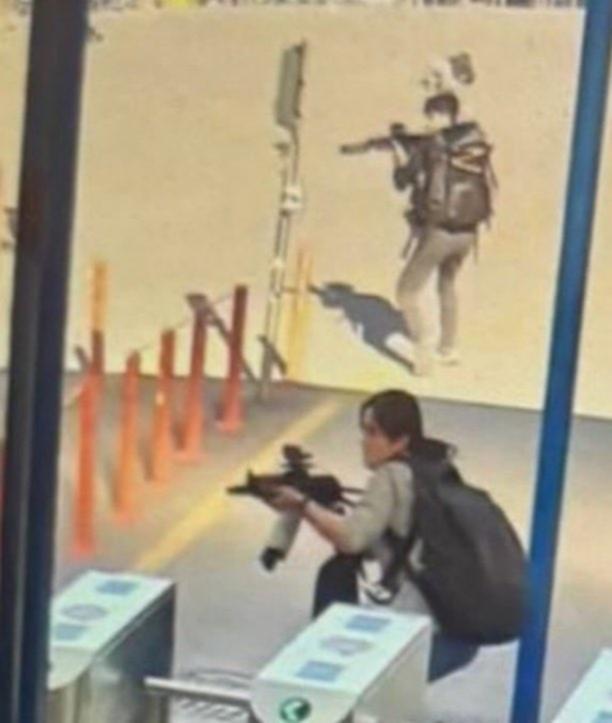
Early Life in Izmir and Search for Identity
“My name is Asya Ali. My name in the system is Mine Şevjin Aliçiçek. I was born and raised in Izmir. I joined the organization in 2015 through Colemerg. I am originally from Colemerg,” she states in a video recorded before her mission.
Born in 1989, Asya Ali, originally Mine Şevjin Alçiçek, grew up in Izmir as the only daughter in a family of four children. Although her family had roots in Colemerg (modern-day Hakkâri), Asya’s upbringing in Izmir created a blend of influences that often left her feeling divided.
“Our social environment—our school friends—was a world apart, with completely different agendas and ideals. Our way of perceiving the world differed drastically, but they were my friends,” she wrote, describing the gap between her personal identity and her surroundings. Her school peers and neighbors were largely from Kemalist, state-loyal backgrounds, leaving little space for her to connect with her Kurdish roots.
“This environment,” she reflected, “created an internal struggle: One side of me longed for the culture and identity I couldn’t fully live out, while the other adapted to the surrounding environment, distant and even alien to my core values.” Her reflections suggest an identity caught between two worlds, one that her family’s Kurdish heritage alone could not resolve.
Joining the Kurdish Movement
In her early twenties, Asya began seeking political and ideological spaces that resonated with her values, exploring leftist, feminist, and ecological movements. However, none offered the coherence of theory and practice she desired.
“I was searching for a movement that not only opposed the system but also presented a true alternative,” she wrote. “The lack of this wholeness left me feeling like a tree torn from its roots, destined to drift aimlessly.”
It wasn’t until she encountered the works of Abdullah Öcalan, the PKK’s imprisoned leader, that she found an ideological foundation. Öcalan’s analysis, she said, answered “all the questions I had never been able to resolve” and offered a vision that aligned with her growing sense of Kurdish nationalism and commitment to change.
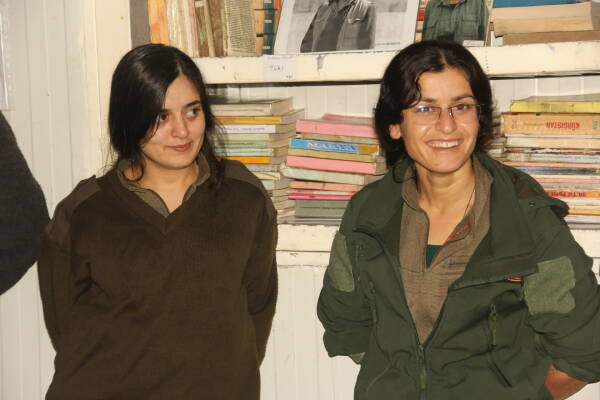
Her ideological journey set the stage for her active participation in the Kurdish movement. By 2015, she had joined the PKK, setting out on a path she believed would finally ground her sense of purpose.
Stationed in the Zap and Cilo regions, she underwent guerrilla training, delving into both the tactical and ideological aspects of the organization. Her transition was marked by a deep sense of purpose, as she felt she had finally found the “roots” she had sought for so long.
By 2018, she advanced to the Şehîd Mahir Academy, where she trained in sabotage—a skill she viewed as essential to the Kurdish struggle. “The reason I wanted sabotage so much was to make the bombs that would bring me freedom with my own hands,” she explained.
The Path to Becoming a ‘Fidayee’
From the beginning, Asya’s aspiration was to join the Şehîd Zilan Battalion, an “elite unit known for self-sacrificial missions.” “Since I joined, the place I wanted to reach was the Şehîd Zilan Battalion,” she stated, viewing it as the highest expression of dedication to the Kurdish cause.
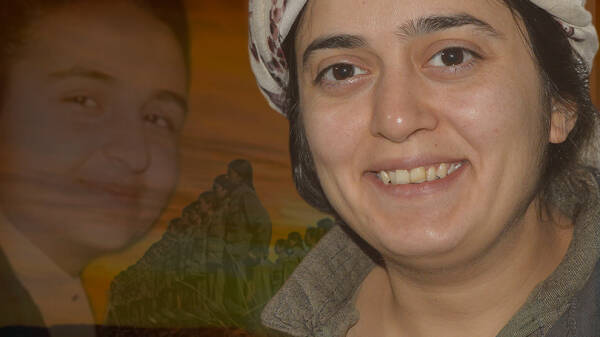
Yet her journey wasn’t straightforward. At one point, she volunteered to complete a mission left unfinished by another fighter, only to be told that such operations would be paused temporarily.
Though she faced organizational resistance, her resolve remained intact. “If our leadership wasn’t ready to send me on such missions, I would prove I was ready by preparing myself further,” she explained, determined to overcome any perceived inexperience.
In her writings, Asya reflected on how her understanding of becoming a Fidayee evolved. Initially, she saw it as primarily a physical act. “I used to think being a Fidayee was just about setting off a bomb,” she admitted, recognizing this view as simplistic. Over time, she understood the role’s deeper demands: ideological dedication and personal transformation.
“The organization emphasizes ‘recreating oneself’ as a foundation for self-sacrifice,” she noted. “Being a Fidayee,” she continued, “is a matter of living by this mission in every aspect of life, to pursue it with intense self-discipline and to continuously battle against one’s own weaknesses.”
Her journey within the organization thus became a process of extensive self-examination. “Capitalism teaches ‘I want it, so it’s mine.’ In our organization, wanting to fight requires one to prepare, to commit, and to make sacrifices,” she explained. For Asya, the role of a Fidayee demanded both ideological alignment and unwavering discipline, qualities she worked tirelessly to cultivate.
Ideological Commitment and the Vision of Liberation
Asya saw her mission as part of a broader struggle for Kurdish autonomy and the release of Abdullah Öcalan. “This can be realized by friends who have set this as a goal, who have transformed themselves, and who deserve to be Rêber Apo’s Heval,” she noted, using the Kurdish term for comrade.

She viewed the struggle as one that should extend beyond Kurdish borders. “It is not enough to fight within Kurdistan; the struggle must be brought to the metropolises, to suffocate the enemy in its own strongholds,” she said. For Asya, this broader vision was essential to push Turkish authorities to recognize Kurdish demands.
Reflecting on her years within the organization, she expressed gratitude for the support and opportunities provided to her. “They offered moral and material resources beyond what even my family could,” she noted, adding that the sacrifices she made were small in comparison to the movement’s collective mission.
She viewed the difficulties of guerrilla life as steps on the path toward Kurdish liberation. “The hardships are as beautiful as they are heavy because you believe they will yield results,” she observed.
In her final reflections, Asya expressed confidence in the organization’s future and in Öcalan’s return to lead them. “I believe that the results of this will be achieved in a very short time. A strong result will be achieved, and Rêber Apo will be among us in the near future.”
Letter of Farewell to Her Family
In a final letter addressed to her family, Asya conveyed love alongside unwavering commitment. While she acknowledged the difficulty her family would face upon hearing of her death, she urged them to understand her choice, explaining it as a reflection of the values they had instilled in her.
“You taught me values and morals that led me to a life dedicated to freedom. Honoring you means fighting for you,” she wrote, expressing that her commitment to the PKK had, in her view, deepened her love and respect for her family.
Asya requested that her family resist traditional mourning, stressing that tears would not honor her choice or her cause. “Do not weep for me,” she urged. “Crying will neither elevate me nor honor what I stood for. Let this be your first act of defiance.”
She specifically asked that her nieces and nephews be raised with a strong sense of Kurdish identity, hoping they would not experience the “cultural disconnection” that had marked her early life.
She also expressed a desire for her remains, should any survive, to rest among her comrades. “If any part of me remains, let it be buried among them. I have lost hundreds of comrades; you may lose a daughter, but remember I am not alone.”
In a personal message to her mother, Asya apologized for their limited time together, explaining that she had once believed her father and brothers’ presence would suffice.
However, she had come to appreciate the “irreplaceable strength that only women share,” a bond she found among her female comrades. She encouraged her mother to foster similar connections with other women, believing this would be “the greatest gift” her mother could give her.
“Remember,” she wrote, “as long as you keep my struggle alive in your actions, I am with you. My comrades are also your children, and I am a child of all martyrs’ families. Know that as much as you understand me, I am always by your side.”
This report is based on videos, letters, and personal writings of Asya Ali.











